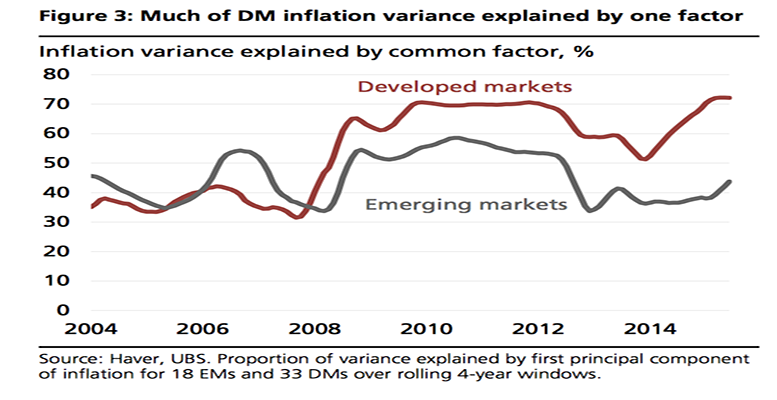Recent events in China have increased attention on the issue, but global disinflation is about much more. A still-negative global output gap, rising inflation persistence, and a flatter Phillips curve have been key in keeping global inflation low, and regardless of what happens, over the near term, with China or commodity prices, they should continue to weigh.
Well-contained inflation is key for benign risk environment
At this particular macro juncture, a rise in global inflation that called into question accommodative monetary policies would be among the worst possible scenarios for pro-cyclical (risky) assets. If, however, inflation remains contained, the underlying benign global backdrop is still in place.
Equity markets featuring strong credit growth are likely to rally further
This global backdrop is particularly supportive for developed market (DM) equities where credit growth is accelerating (Europe and Japan). That said, we don’t expect this “reflationary” benefit for emerging market (EM) equities. EM disinflation does not enhance valuations since it largely reflects weaker growth, not better policy.
Exchange rates from small open economies are likely to depreciate
Small open economies are the biggest importers of global disinflation. Where policy rates are below zero (CHF and SEK), the currency is the likeliest release valve: we expect FX depreciation against the EUR. There are also currencies where inflation has been elevated, but is likely to converge to G10 levels (AUD and NOK). These should depreciate, too.
Wide interest rate gaps should narrow as inflation converges
In addition to keeping interest rates low generally, disinflation should act, on the margin, to equalize longer-term G10 yields. The 150bp spread between US and German 10-year yields stands out in this regard, and should narrow.





